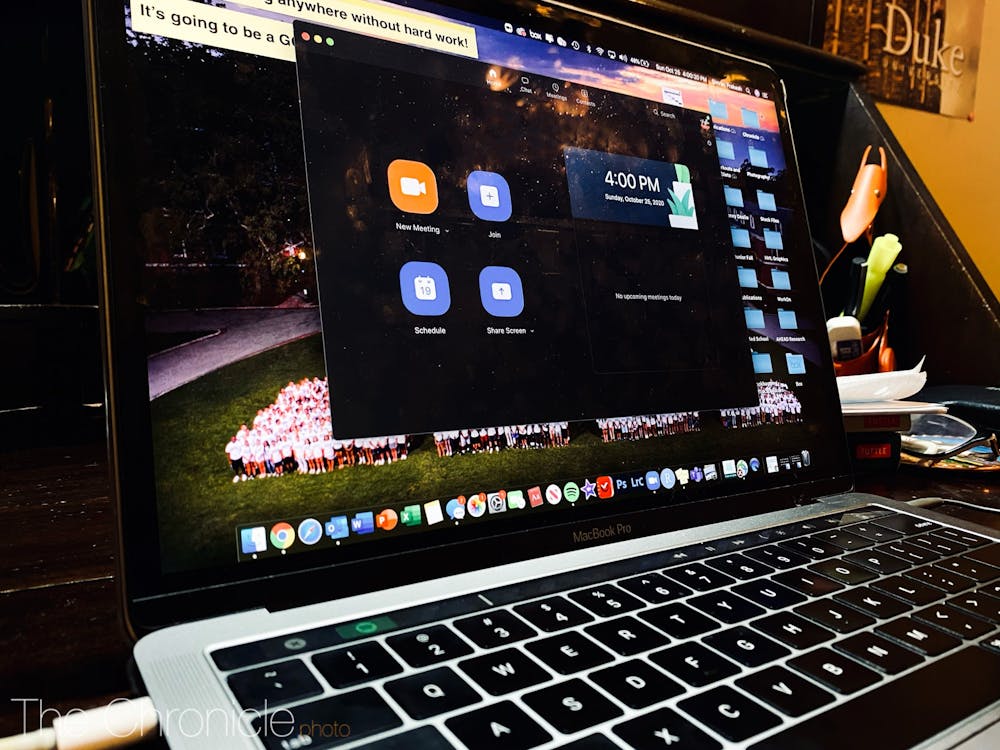Duke Student Government caucuses are changing course after realizing that other student groups are doing much of the work they had originally planned to carry out, DSG senators said at their Wednesday meeting.
Following criticism in the 2018-19 academic year that DSG was not adequately representative of all voices on campus, caucuses were created for DSG representatives to advocate for and work with particular campus demographics. Some caucuses have instead found it difficult to distinguish between their role and that of student groups with similar missions.
Senator Dawei Gao, a sophomore, reported that the first-generation, low-income caucus had met with the Duke Low-Income, First-Generation Engagement Office and the directors of the Rubenstein Scholars Program to see what needs are facing Duke’s first-generation, low-income community.
“A lot of these student groups that represent what’s supposed to be in our purview in DSG have told the caucuses that they’ve already got a lot of stuff handled,” Gao said.
Gao proposed that caucuses shift from mainly proposing and executing projects to refining and approving projects.They would see what action could be taken to make the project more efficient and benefit the most students.
The Latinx caucus reported that in their most recent meeting, they considered the question of whether they wanted to continue having a caucus, with a majority saying yes. In line with Gao’s suggestion, they decided that the caucus would serve as a discussion panel that would hold student representatives accountable for communicating with student groups.
“We abandoned the idea of projects. A lot of the time, it overlaps with a lot of efforts that student groups do, and I think they do a great job of advocating on behalf of themselves. Sometimes they just need a little bit of support and want to know how exactly DSG works, why we make the decisions that we make and what constraints we’re bounded by,” said Aly Diaz, a senior and DSG vice president of durham and Regional Affairs.
The disability caucus reported a similar concern about overlapping projects with the Duke Disability Alliance. Represented by Swetha Rajagopal, a sophomore, the disability caucus was looking into ways to “allow for more space to express people’s disability identities on campus.” After talking to DDA, however, the caucus found that they had already created a disability cultural center set to open later this spring.
“That’s something I found out connecting with DDA, but had I not done that, it would’ve been two separate things and we would have been, again, enforcing redundancy,” Rajagopal said.
Nicole Rosenzweig, a first-year, noted that the mental health caucus had discussed combining the caucus with the Student Wellness Advisory Committee, a DSG affiliate group, due to overlapping goals.
In light of these concerns, DSG will hold a meeting open to all undergraduates to discuss the differences between affiliate groups and caucuses, outline their distinct structures and consider if the two entities should be merged into one.
In other business
The Senate recognized student group Duke Seventh Day Adventist Student Association, which aims to provide a community for Seventh Day Adventist students who wish to “lead people into a personal relationship with Jesus Christ.” A request for chartering from student group Sky@Duke, which focuses on “meditation, breathwork, emotional intelligence, social connection, and service leadership,” according to its application, was tabled due to its similarities to resources offered by DuWell.
The Senate passed the Waste Audit Budgetary Statute, in which the Services and Sustainability Committee requested $68 to purchase tongs and informational posters.
One new senator, junior Alex Smith, was confirmed, and the Senate conducted their first reading of revised affiliate by-laws.
Get The Chronicle straight to your inbox
Signup for our weekly newsletter. Cancel at any time.

Milla Surjadi is a Trinity junior and a diversity, equity and inclusion coordinator of The Chronicle's 119th volume. She was previously editor-in-chief for Volume 118.

